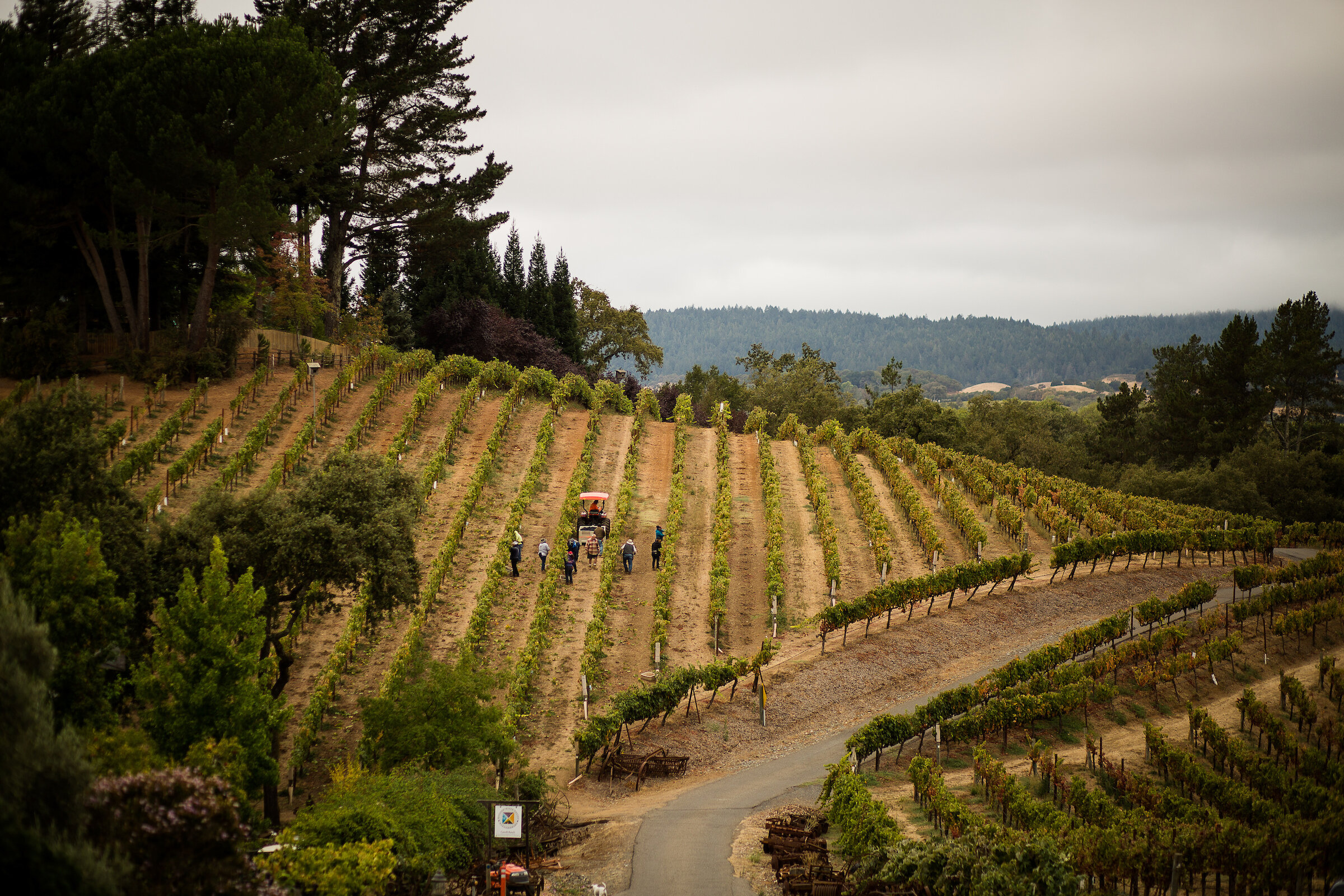Classic Winemaking
Winemaking begins, first and foremost, in the vineyard. The minimal, classic style of winemaking we practice can only produce great wines when the fruit we receive is balanced and healthy. The organic, sustainable, and biodynamic practices of the vineyards we source from are the foundation for everything that follows.
Foot Crushing.
While foot crushing can appear to be an outdated technique, there are many reasons to opt for the human foot or hand instead of a mechanical crusher.
The woody stems in grape clusters contain tannins and elements that contribute to ‘green’ flavors in wine. Mechanical crushers can tear and break apart these stems, releasing more of these harsh flavors than the gentler process of crushing by foot.
Additionally, foot crushing is an imperfect process. By leaving some of the grapes intact during whole-cluster fermentation there may be a small amount of carbonic maceration (intracellular fermentation) in the process, potentially adding another layer of complexity.
Native Yeasts.
We rely exclusively on the native yeasts (sometimes called ‘ambient yeasts’) for the fermentation of our wines. These are the yeasts that ride in on the skin of the grapes and that fly around in our cellar.
Unlike lab-created yeasts, native yeasts are the naturally occurring product of the healthy biome of our surroundings. By using these yeasts we can be sure that we’re not adding anything to the wine that doesn’t represent the unique time and place of each site and vintage, commonly known as terroir.
By not adding anything to ‘kick start’ the fermentation process, we rely solely on Mother Nature to turn juice into wine, just like it was originally done millenia ago.
Minimal Impact.
We rely on healthy vineyards supplying us with balanced fruit to produce quality wines without unnatural additives. We feel that this is the best way to truly express the ephemeral quality of wine that makes it so enthralling, as it is a product of a place and time that can never be reproduced.
We use primarily Neutral French Oak, concrete and stainless steel vessels for the fermentation and aging of our wines. This allows the wines to express their character without being overwhelmed by external flavors imparted by new or heavily toasted barrels.
Sulfur, a naturally occurring by-product of fermentation, is applied to some of our wines for its stabilizing properties. We use the most minimal amount possible, just enough to ensure that our wines are fresh and consistent.




